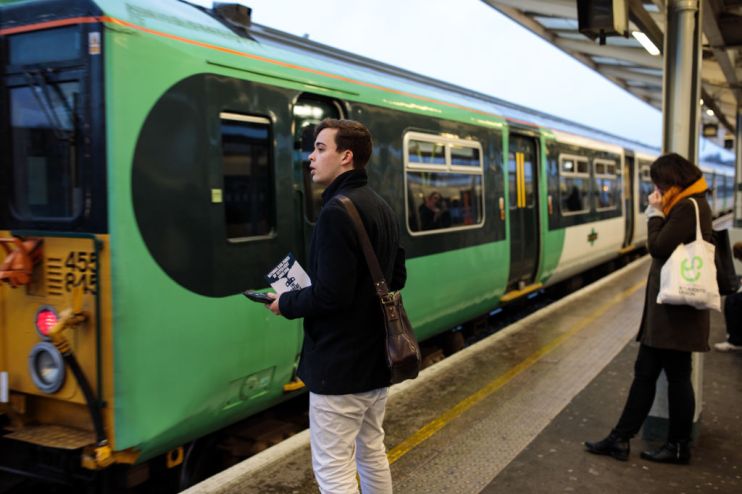UK train fares set for another substantial rise as inflation climbs

UK train fares are set for another substantial rise in January 2020 after the inflation gauge they are based on climbed by a yearly rate of 2.8 per cent in July, according to official figures released today.
Read more: UK wage growth hits 11-year high in first quarter despite shrinking economy
Each January, train fares are allowed to rise by as much as July’s retail price index (RPI) measure of inflation.
The rise will be lower than the 3.1 per cent increase seen in January of this year, which pushed up the prices of some annual season tickets by over £100.
The inflation rate that the Bank of England focuses on, the consumer price index (CPI), unexpectedly rose to 2.1 per cent in July, the Office for National Statistics (ONS) said.
This is above the Bank’s ideal rate of two per cent and economists’ predictions of a fall to 1.9 per cent after a two per cent reading of June.
Assistant head of inflation at the ONS, Chris Jenkins, said: “The inflation rate increased slightly, with computer games, consoles and hotel prices rising more than they did last year.”
“Conversely, air, international rail and sea fares did not rise by as much as 12 months ago.”
Consumer price index including housing costs (CPIH) rose to two per cent in July, up from 1.9 per cent in June.
Jenkins said: “Overall house prices growth was unchanged from May, but in London annual growth was negative once again, decreasing for the 16th month in succession.”
The inflation figures came a day after wage growth in Britain was shown to have reached an 11-month high of 3.9 per cent in the second quarter of the year.
Today’s inflation rise means Britons’ real wages – the amount of extra goods and services people can by – are growing strongly but have been eaten into slightly.
Rail fare hike
Many commuters will be angry that their rail fares are set to increase by 2.8 per cent in January.
The Campaign for Better Transport has called for price increases to be based on the CPI reading, which is usually considerably lower than RPI.
Yesterday, TUC trade union analysis showed rail fares have risen twice as fast as wages in the past decade.
They have risen by 46 per cent since 2009, while nominal weekly earnings have only grown by 23 per cent.
The RMT rail union called today’s inflation figures “a kick in the teeth” for passengers who will face another hike in January and have to travel on “on overcrowded, clapped out and unreliable trains”.
Read more: Rail fares have risen twice as fast as wages over past decade, says union
Yet the Rail Delivery Group (RDG) said that “by holding rises down to no more than inflation, government is ensuring that money from fares continues to cover almost all of the day-to-day costs of running rail services”.
(Image credit: Getty)